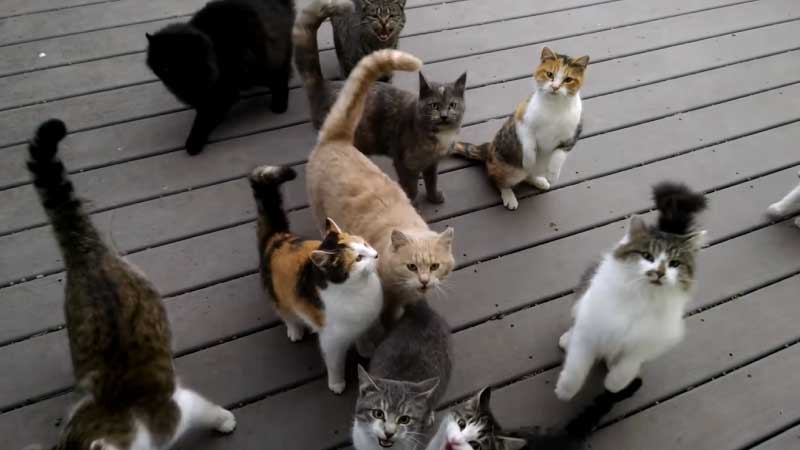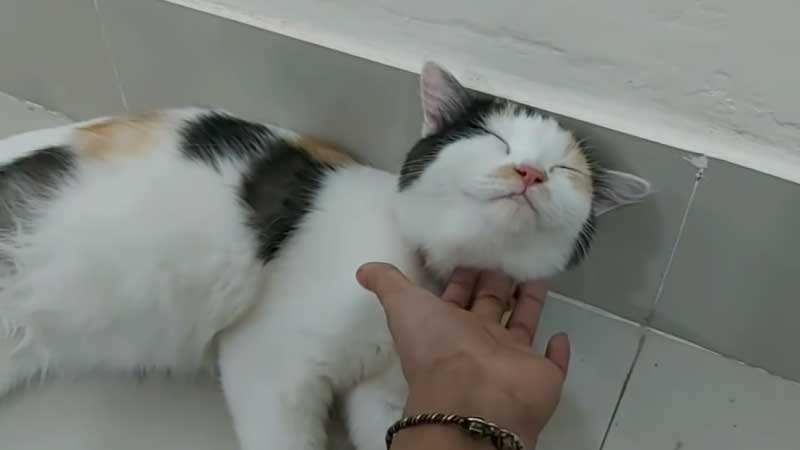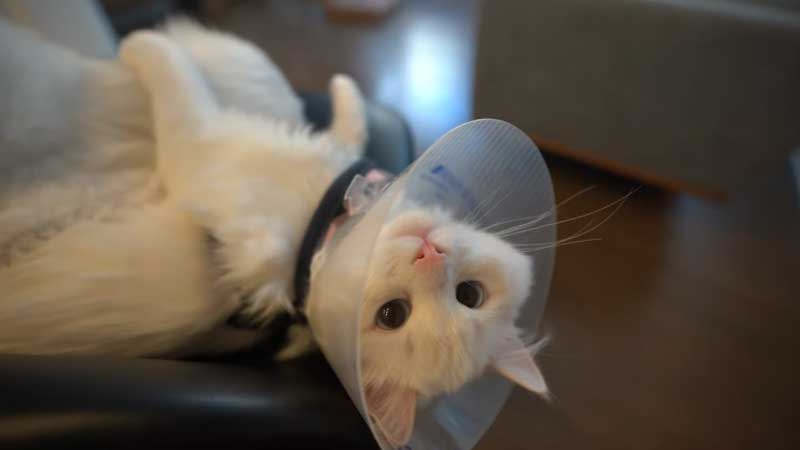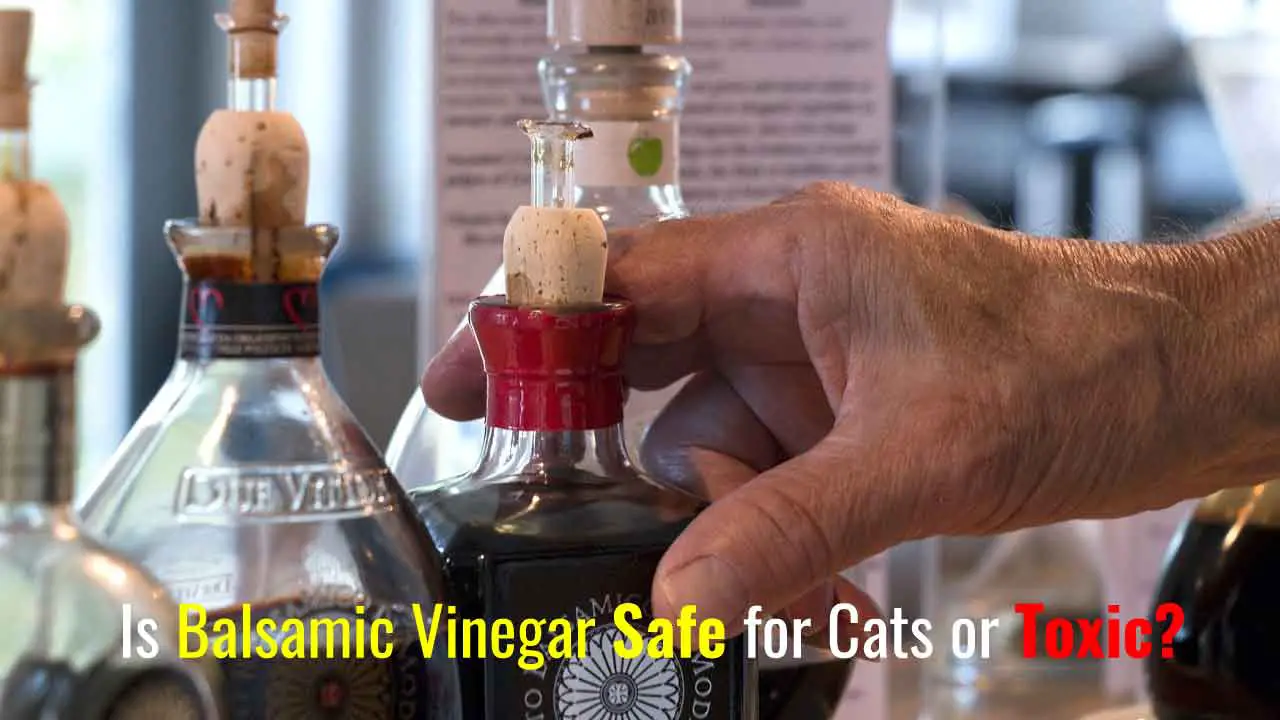The question has sparked curiosity among many feline lovers, as the health and well-being of their cat is always a top priority. At first glance, the question of can unvaccinated cats be around vaccinated cats might seem simple, but it dives deep into the complicated.
In short answer is, yes, they can be around each other, but there are several considerations and precautions to keep in mind.
In this article, we’ll unravel the details of this topic, guiding you through the essentials so you can make the best decisions for your furry family members. Let’s first know the risk.
Table of Contents
Can Unvaccinated Cats Be Around Vaccinated Cats? The Risks Associated with Unvaccinated Cats

It’s a natural tendency for pet parents to shield their beloved felines from any potential harm. While we might be keen to protect them from obvious dangers like traffic or aggressive animals, some unseen threats can creep closer than we think, especially for unvaccinated cats.
Common diseases unvaccinated cats might be affected by include:
| Disease | Brief Description | Transmission Method |
|---|---|---|
| Feline Panleukopenia | Often dubbed as “cat distemper,” it severely impacts kittens | Direct contact, contaminated surfaces |
| Feline Calicivirus | Causes respiratory infections and mouth ulcers | Direct and indirect contact |
| Feline Herpesvirus | Leads to upper respiratory infections | Direct contact, airborne |
| Feline Leukemia (FeLV) | A viral infection affecting the immune system | Close contact, bite wounds |
| Rabies | Fatal virus affecting the central nervous system | Bites from infected animals |
How Vaccinations Work to Protect Cats from Diseases: Vaccinations are like training sessions for the immune system. They introduce a harmless version or component of a disease-causing pathogen to the body, prompting the immune system to recognize and “remember” how to fight it. If a vaccinated cat encounters the natural pathogen, its immune system is prepared and ready to defend against it, reducing the risk of serious illness.
Potential Dangers to Unvaccinated Cats Exposed to the Environment or Other Animals: Cats that haven’t been vaccinated are like warriors without shields in the face of infectious diseases. Not only are they more susceptible to common feline illnesses, but their exposure to the outdoor environment or interactions with other animals, vaccinated or not, might expose them to carriers of these diseases.
Such as, a simple playdate with a neighborhood cat might expose them to Feline Leukemia Virus (FeLV) if the other cat is a carrier. Moreover, indirect contact, like sharing litter boxes or toys, can be a risk factor.
You may also like: Accidentally Gave Cat Double Dose of Flea Medicine
The Safety of Mixing Vaccinated and Unvaccinated Cats

Mixing vaccinated and unvaccinated cats isn’t as simple as inviting a friend over for tea. It’s a complicated dance, with both partners having unique needs and vulnerabilities. Understanding the safety of bringing these two together is paramount for the health and harmony of your feline family.
Factors to Consider Mixing Vaccinated and Unvaccinated Cats:
- Age: Kittens, with their developing immune systems, and senior cats, with potentially weakened immunity, are at greater risk when exposed to infectious agents. They might be more susceptible to diseases than middle-aged cats.
- Health Status: An unvaccinated cat with a compromised health condition can be more vulnerable to infections. Similarly, a vaccinated cat with underlying health issues may not respond to vaccines as robustly as a healthy one.
- Indoor vs. Outdoor: Outdoor cats have a higher risk of exposure to various bacteria due to their environment. Mixing an outdoor, unvaccinated cat with a vaccinated indoor cat could potentially introduce new threats to the latter.
- Vaccination History: It’s essential to understand the vaccine history of the vaccinated cat. Some vaccines need boosters or have a specific duration of effectiveness.
- Exposure History: An unvaccinated cat’s past exposure to other animals or environments can influence its risk factor when mingling with vaccinated ones.
The “Herd Immunity” Concept and Its Significance: “Herd immunity” isn’t just a fancy term from epidemiology; it also plays a crucial role in pet communities. The idea is simple yet profound: when a large portion of a community (in this case, our feline friends) is immune to a specific disease, it reduces the overall spread of that disease. This means that even those who aren’t immune (like our unvaccinated cats) get indirect protection because the disease has fewer chances to spread.
However, there’s a catch. For herd immunity to be effective, a significant majority needs to be vaccinated. The risk might be minimal if you have multiple cats and only one is unvaccinated. But if the scales tip and more cats are unvaccinated, the protective bubble of herd immunity weakens.
Benefits vs. Risks of Keeping Vaccinated and Unvaccinated Cats Together

Deciding whether to allow vaccinated and unvaccinated cats to live under the same roof can be challenging. While this arrangement has certain benefits, it’s equally important to understand the potential risks involved. Below, we present a side-by-side comparison to help you navigate this decision more informally.
Benefits
Risks
Practical Steps to Mixing Vaccinated and Unvaccinated Cats
If you find yourself in a situation where you have both vaccinated and unvaccinated cats under the same roof, worry not. While there are inherent risks, taking a systematic and careful approach can help ensure a smoother integration. Let’s walk through the practical steps you should consider to protect the well-being of all your feline family members.
Introducing Them Gradually:
- Neutral Territory: Start by introducing the cats in a neutral space. This reduces territorial instincts and potential aggression.
- Scent Swapping: Before a face-to-face meeting, swap bedding or toys between the cats. Familiarizing them with each other’s scent can make the eventual introduction less stressful.
- Short and Supervised Interactions: Initially, allow short periods of interaction while supervised. Gradually increase the duration over time as they become accustomed to each other.
- Separation Periods: Keep them separated when you’re not around, at least in the beginning, to avoid unsupervised confrontations.
Monitoring for Signs of Illness:
- Daily Observations: Look out for behavioral changes, loss of appetite, lethargy, or unusual aggression. These might indicate health issues.
- Physical Check: Regularly check for symptoms like nasal discharge, coughing, sneezing, or diarrhea.
- Immediate Separation: If any cat shows signs of illness, separate them immediately and consult a veterinarian.
Importance of Regular Vet Check-ups:
- Routine Health Assessments: Regular check-ups ensure that both vaccinated and unvaccinated cats are in optimal health and free from contagious illnesses.
- Vaccination Consultation: Discuss the potential of vaccinating the unvaccinated cat, or if already vaccinated, ensure boosters are up-to-date.
- Expert Advice: Veterinarians can offer tailored advice based on the specific needs of your cats, considering their age, health status, and history.
While mixing vaccinated and unvaccinated cats isn’t without challenges, a proactive approach combined with expert guidance can make this cohabitation both safe and harmonious.
Read Also: How Long Can You Leave Wet Cat Food Out Before It Spoils
FAQs: Frequently Asked Questions
Why is it risky for unvaccinated cats to be around vaccinated cats?
Vaccinated cats may carry diseases that they are immune to, but that could be harmful or fatal to unvaccinated cats.
Can vaccinated cats still carry diseases?
Yes, vaccinated cats can be carriers of diseases without showing symptoms, which can be risky for unvaccinated cats.
What vaccinations should my cat have before interacting with other cats?
Common vaccinations include those for feline leukemia virus (FeLV), feline immunodeficiency virus (FIV), feline panleukopenia virus (FPV), and rabies.
Is it possible for an unvaccinated cat to safely interact with a vaccinated cat?
It’s risky, and the level of risk depends on the health of the unvaccinated cat, the vaccinations the other cat has, and the environment they’re in.
How soon after vaccination can a cat safely interact with an unvaccinated cat?
It’s advisable to wait for at least two weeks post-vaccination, but consulting with a veterinarian for personalized advice is best.
Are indoor cats less at risk when interacting with vaccinated cats?
Indoor cats may have a lower risk of exposure to some diseases, but the risk is not eliminated.

Final Verdict
Vaccination plays a pivotal role in ensuring a safe playground for our furry companions. The significant question is: can unvaccinated and vaccinated cats share the same space?
It’s a tricky situation, as unvaccinated cats are susceptible to a variety of infectious diseases that vaccinated cats might be carrying unconsciously. While vaccinated cats are protected against many common feline diseases, they can still be silent carriers, posing a risk to their unvaccinated counterparts.
It’s highly advisable to vaccinate all cats in a household to create a safer environment for our beloved feline family.




